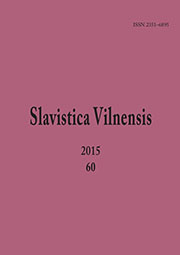
Йоже Топоришич (11 ноября 1926 г.–10 декабря 2014 г.)основоположник современной словенистики,пропагандист и популяризатор словенского языка
In memoriam: Jozhe Toporishich (November 11, 1926–December 10, 2014)
More...We kindly inform you that, as long as the subject affiliation of our 300.000+ articles is in progress, you might get unsufficient or no results on your third level or second level search. In this case, please broaden your search criteria.

In memoriam: Jozhe Toporishich (November 11, 1926–December 10, 2014)
More...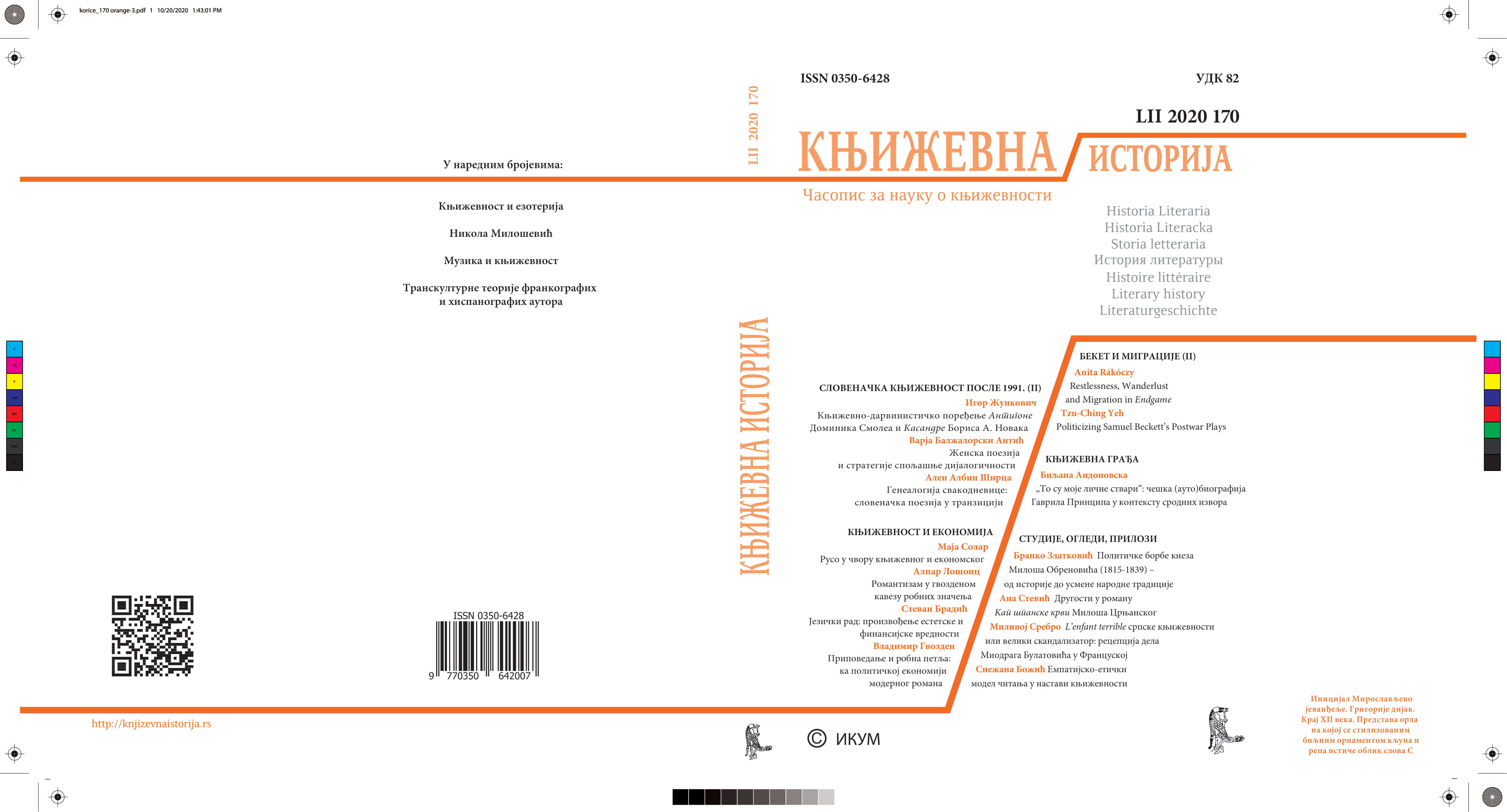
Antigone by Dominik Smole is a literary text which gave rise to a question of the possibility of reconciliation in Slovenia. I understand reconciliation as the process of easing the social tension, the main consequence of which is the re-establishment of connections within a community or between individuals. The same question arises in relation to Cassandra by Boris A. Novak, although his play focuses on a different, personal aspect of reconciliation. Literary Darwinism and neurocognitive literary studies open up a theoretical possibility to understand individual and collective confrontation with difficulties in establishing and maintaining interpersonal relations, social cohesion, and the role of an individual in a community. It is on these theoretical foundations that I set up a literary Darwinian model of analysis for both plays, which I employ analyzing the bases of both heroines’ actions. On the other hand, by applying the proposed analytical model, we can better understand which cognitive mechanisms are at the bottom of the similarities between Antigone and Cassandra and why there are indelible differences and tensions between them.
More...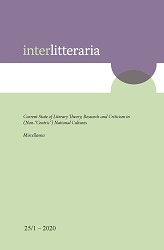
The article critically evaluates The Three Lives of Antigone, Slavoj Žižek’s first dramatic work. Žižek’s polemical rewriting of Sophocles’ tragedy is examined in the broader perspective of Žižek’s philosophy and other Antigones: those of Sophocles, Jean Anouilh, Bertolt Brecht and Dominik Smole. Slavoj Žižek has interpreted Sophocles’ Antigone in numerous philosophical works. In his earlier treatises, he mainly gave a cautious summary of Hegel’s, Heidegger’s and Lacan’s theses on Antigone; lately, however, Žižek’s attitude to Sophocles’ Antigone has grown decidedly negative. The main point in Žižek’s critique of Sophocles’ tragedy is that his Antigone is not an appropriate symbol of genuine social revolt. Based on this conviction, Žižek contrived his own version of Antigone with an alternative ending in which the choir carries out a revolution and condemns Antigone to death. It is argued in the article that Žižek’s dramatic project fails to convince. It is essentially a superficial apology for political violence, which can ultimately only be understood as a veiled defence of the political status quo.
More...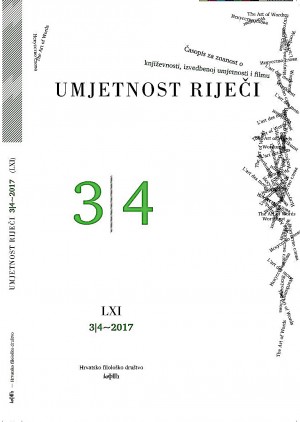
Simon Jenko, primarily known as a poet, published five short stories between 1857 and 1858. One (Predpustnica/The Carnival) was published in 1857 in Venec and four of them in 1858: one of those in Vaje (Kaznovana tercijalka/A Punished Bigoted Woman) and three, the most prominent ones, in Janežič’s Slovenski glasnik (Spomini/Memories, Tilka, and Jeprški učitelj/The Teacher from Jeprca). Jenko’s prose is analysed in greater detail by Matjaž Kmecl (1973) and France Bernik (1956). The critics interpret one of the stories, Spomini (Memories), from a completely different standpoint: Kmecl interprets it as the product of Jenko’s romantic bourgeois ideology influenced by European Romantic movements, and Bernik as the culmination of Jenko’s loyalty to realism or even as “counter-Romanticism”. Since the critics’ understanding of what romantic and realist implies is epistemologically so different, it seems unproductive to simply oppose their views. Hence, this paper contextualises the critics’ implicit conceptions of romantic and realist with two distinct literary historical traditions and narratives from the second half of the 19th century.
More...
Quantitative approaches in studying literature already have a long tradition, reaching back to the period before digital humanities became an established field in the humanities. An important impetus for the establishment of quantitative methods in the humanities was provided by increasing computer power and increasingly extensive corpuses of machine-readable words. Theoretical concepts refer to the new methodological paradigms as distant reading. Even though it is supposed to replace close reading, it has repeatedly been shown that traditional research forms the necessary basis for relevant quantitative research and new relevant findings. Stylometry, or quantitative analysis of style, applies statistical methods to literary texts. The analysis entails text comparison in terms of similarities and differences in measurable text characteristics, such as the most frequent words. This is a well-proven method, which, however, has certain limitations. Stylometry is a text-immanent method that does not provide absolutely valid answers or general findings about style. In addition, the definition of measurable characteristics and the comparison method used remain in the domain of the researchers and their familiarity with the material. However, it allows a simultaneous overview of a large collection of texts and hence reaches beyond the established canon incorporating trivial literature and translated literature as an important segment of national literature, especially in its early periods. Stylometric analysis identifies text patterns, which can either be confirmed by qualitative research or can indicate the necessity for a new approach to traditional research. The visualization of results of the stylometric analysis of Slovenian narrative literature from the first half of the seventeenth century to the first original Slovenian narrative in 1836 shows the development of Slovenian narrative literature by period, with identifiable hallmarks of certain authors, and within individual periods and genres. Certain links indicate a need for further research.
More...
The analysis of the author’s own past research has shown that digital tools do not have a significant role in contributing to new interpretations of the Slovene literary canon. However, when shifting the subject of interpretation from a single work to authorial opera, genre corpora, literary period or the entire national literature, it becomes clear how quantitative methods, stimulated by digitalisation of the cultural past, literary databases and digital tools play a vital role. Interpretations that consider the richness of data, generated by digital culture, are more trustworthy than the former ones. The price we pay for that is the refusal of clear encyclopaedic definitions and descriptions. Literary past, observed through the digital humanities’ perspective has a fuzzy development because the central phaenomena gradually fade in the multitude of rival or peripheral phenomena. Slovene literature is not represented by prominent authors and their famous works any more, it does not comply with dictation of the great national myth, i.e., the construction of the nation from the spirit of literature. Rather, it is considered as a random fact, a matter of serendipity. It is represented as the entire literary production on the Slovene territory, in Slovene as well as other languages. Due to special circumstances, it is different from the neighbouring literatures and it triggers new, nation-specific definitions of literary phenomena. New interpretations of Slovene literature are not only indebted to the use of digital tools, but also to the consequence of changes within the literary system itself. In its beginnings, Slovene literature was dedicated to the constitution and emancipation of the nation, while now it also legitimately fulfils other human needs and functions: cultural recreation, women and social minorities’ emancipation and mobilisation, escapism, self-reflection, self-therapy, testing of the alternative models of social behaviour, etc.
More...
The paper focuses on the micro-structural analysis, i.e., close-reading, of the selected literary texts. Close-reading is the opposite of distant reading that generally connotes analysis of a much larger corpus. Close-reading is an acceptable strategy for textual interpretation. This strategy includes, at first glance, some banal issues, such as the relationship between historically documented events and their literary (fictional) presentations, spatial data (in this case Maribor and its topography), and temporal data (linear or recursive). Furthermore, this procedure enables identification of a given genre, for example a cycle or some kind of a supra-text (in this case a novelistic trilogy). The analysis will show how the fundamental paradox embedded in Maribor, its Slovene-German past, is reflected in Jančar’s novels. Special emphasis is placed on processes, motifs, images, characters, events and even micro-texts present in Jančar’s short prose that later reappear in his novels in a new context. Jančar’s text that are studied are Severni sij (Northern Lights, 1984), To noč sem jo videl (I Saw Her That Night, 2010) and In ljubezen tudi (And Love Itself, 2017).
More...
The article looks at the position of LGBTQ literature for children and young adults in the Slovenian literary system. In particular, it attempts to demonstrate that LGBTQ texts are often written, understood and didacticized with (implicit)reference to difference, empathy, acceptance and otherness. It analyses literary and critical texts with a focus on the apparently well-meaning processes of othering found at the levels of plot, character, writers’ didactic interference, critical reception and publishing. These processes influence how the members of the in-group perceive the members of the out-group (both of whom can be readers and writers) and how each see themselves. Not only do they reflect, but they also help shape reality and impact on the ways individuals are treated in society. Therefore, the criteria of literariness, though essential, are not absolute, and all agents in the children’s and young adultliterary system should take account of the human/children’s right to inclusion.
More...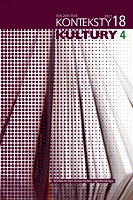
In Slovenian metapoetry, the imagining of the emerging national literary canon symbolized efforts to cultivate the vernacular language. The indigenization of Parnassus, the topos of canonicity, served as an autopoietic strategy of a nascent literary system (embedded in the Habsburg Empire) to assimilate the cosmopolitan patterns of the classical canon and capitalize on its prestige. Through the process of “worlding,” nations canonized their iconic poets as universal. In the international arena, “national poets” were believed to prove that a given nation – especially when stateless – meets the standards of the world canon. While the novel as a form of modern writing represented the national character of core literatures, the peripheries justified their nationality with the canonical epic genre. Prešeren’s 1836 Byronic poem Baptism on the Savica is a deliberately hybrid national epic. It entered the canon because it embodies the national “essence” in a controversial way.
More...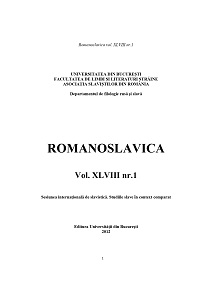
Kad posmatramo slovenske studije literature u evropskom kontekstu, možemo tvrdit, da su one bile među sobnom bliskije u onima kulturama sa kojimi su bile sličnije na području jezika i društveno-političkog uređenja. U okvir ove rasprave su bili posmatrani oni motivi iz društvene realnosti Slovenaca koji pokazujeju na koleraciju odnosa između Slovenaca i drugih naroda, bili oni slovenski (znači lingvističko i kulturno bliski) ili neslovenski (geografski i/ili politički pozicionirani). Slovenački jezik i literatura jesu deo slovenske kulture, ali kritrijum po kome možemo neku kulturu uključiti u neku grupu nije jasno definisan. Danas su ovi kriteriji stavljeni na osnovama, koje naglašavaju kulturne stavove i etničke tendencije nekog naroda i nama ne olakšaju uklučenju u neku grupu. One zbog multikulturarizma nama ovakva uklučenja možda čak i dalje komplikuju.Pozicija nekog naroda, njegovog jezika i kulturnih tendencija nama se pokazuje i preko literature sa tako zvanimi “ulazki i izlazki” znači prevodi u drugu kulturu i literaturu izabranog naroda, gde baš ovaj “ulazak” literature jest upoređen i pozitivno asimiliran (otvara nova društveno-tematska pitanja) i uspostavlja nove paradigme.
More...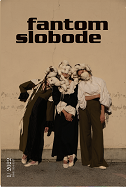
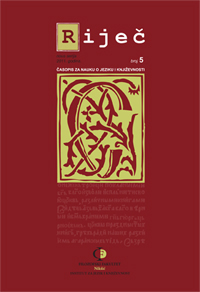
U radu se predstavlja i opisuje životni i stvaralački put obrazovane i načitane Bečlijke Hedvig pl. Radiks-Kaltenbruner (1845-1919), koja se 1876. godine preselila sa porodicom u Ljubljanu, a istovremeno predstavlja i pokušaj da se rehabilituje ova ,,prećutana” i zaboravljena autorka. Iako je Hedvig pl. RadiksKaltenbruner bila aktivna na brojnim područjima javnog života i dostizala zavidne uspehe, ipak su joj, kako slovenačka tako i nemačko-austrijska književna i kulturna istorija, uskratile značajno mesto u kulturnom i društvenom životu koje joj pripada. Rasprava potvrđuje tezu da je, u drugoj polovini 19. i početkom 20. veka u Ljubljani, Hedvig pl. Radiks-Kaltenbruner stvarala i radila kao posrednik između nemačke i slovenačke kulture, i da je u Kranjsku donela brojne nove ideje koje je tu i ostvarila (osnovala je j avnu biblioteku, bila jedan od osnivača ljubljanske Narodne i studentske kuhinje), a pored toga su i njeni publicistički tekstovi, objavljeni u poznatijim nemačkim novinama i časopisima tog vremena, bili posebno analizirani i komentarisani.
More...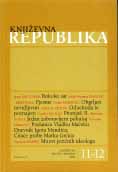
Texts written by Aleš Debeljak: “UMJETNIK I ZAJEDNICA S ONE STRANE ESTETSKOG ISKLJUČIVANJA”, “NEMA »LIJEPE DUŠE« I »RUŽNOG SVIJETA«”, “AUTOMATSKA POLITIKA ESTETICIZMA”, “UMJETNOST KAO VIZIJA I SVJEDOČANSTVO”.
More...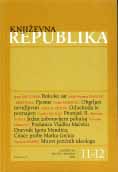
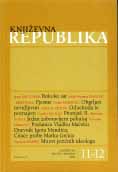
Župnik u Vodnjanu posjetitelju rado pokazuje »najveće blago Istre« što ga čuvaju u crkvi Svetoga Blaža, posjetitelju se ono čini svakako najneobičnijim: nogu svete Barbare, jezik Marije Egipatske i ostatke svetoga Sebastijana. Sebastijanovi su ostaci impozantni: neraspadnuta glava, dio kralježnice, pleća i sačuvani mišići koji su ostali tamo nakon što su u rimskoj tamnici svetom čovjeku iščupali glavu iz tijela. Župnik objašnjava da ni jedna egzaktna znanost ne može objasniti zašto se ta tijela ne raspadaju. Posjetitelj upita postoji li kakva pisana dokumentacija da ti veliki komadi tijela, što počivaju u loše osvijetljenom relikvij ariju, doista pripadaju baš tim sveticama i tom svecu? Na upit ne dobiva odgovor, kasnije spoznaje da su relikvije, prije nego što su se našle u Vodnjanu, bile u posjedu mletačkog slikara Grezlera Sakrio ih je pred Francuzima, koji su godine 1806. ukinuli mletačke samostane a njihove kuće i crkve podržavili. Posjetitelj više ne postavi ni jedno pitanje. A i što da naposljetku ovdje rade pisana dokumentacija kao i egzaktna znanost, koja ne može utvrditi zašto se ti komadi mesa, mišića i kosti ne raspadaju, kad pred njim leže corpi santi. Sveta se tijela ne raspadaju upravo zato što su sveta.
More...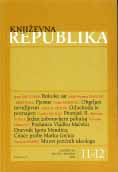
Prose written by Drago Jančar: "Čovjek, koji je pogledao u vir".
More...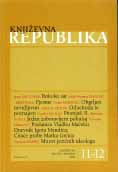
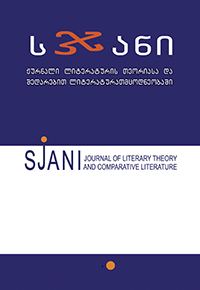
To my knowledge, my poem chosen as an introduction to this contribution was the first »Covid« poem published in any Slovenian literary media. It was issued on August 14, 2020, half a year after the beginning of the crisis in Italy in the literary e-zine LUD Literatura (Potocco 2021). The poem assumes the point-of-view of an Italian resident describing the lockdown, but not opposing it. Instead, the main idea is hidden in the last four verses: the poem questions the possibility of humanism; by putting Darwinism, hedonism and freedom in the context of social media, it questions the validity of the ideological base of these beliefs when shared over these media, and this doubt is implicitly extended to the whole debate over Covid during the first few months of the pandemic. Putting aside that it was first published in an e-zine, I have to point out that it is due to this main idea that the lyrical narrator in the poem does not assume what I shall later describe as »the Slovenian perspective«. Thus the poem can be hardly seen as a representative of the mainstream Slovenian poetry. But it can be taken as a reference – actually as a contrast – to the mainstream Slovenian Covid poetry.
More...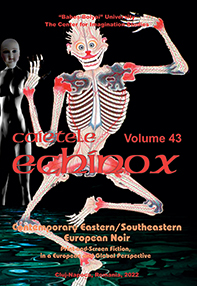
In this article, we analyze the politics of representation in the detective tetralogy (1991- 2009) of the late Slovenian and Triestinian writer Sergej Verč. Addressing several aspects of Verč’s primary literary semiotic device of schizophrenia, we trace a simultaneous literary and chronological shift from minor literature to neoliberal noir. We expose the fundamental representational ambiguity by analyzing the detective triad (murder-victim-criminal), the fetishization of detective clues, the erotization of detection, and the underlying binary oppositions. Verč’s detective novels critique the Slovenian capitalist transition but also reproduce culturally conservative representations of gender, sexuality, and family.
More...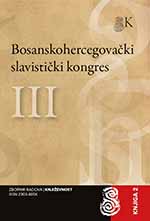
The problem of changing the role of literature in the modern world is especially acute in the former socialist European countries, survived at the end of the twentieth century fundamental social and political changes. Slovenia, which gained sovereignty during the disintegration of the SFRY, is one of the typical examples. For a long time, Slovenian literature developed under the sign of the struggle for national independence, going through many severe trials along the way. The first decades of independence created the preconditions for qualitative changes within literature and led to the transformation of its role in public life.
More...